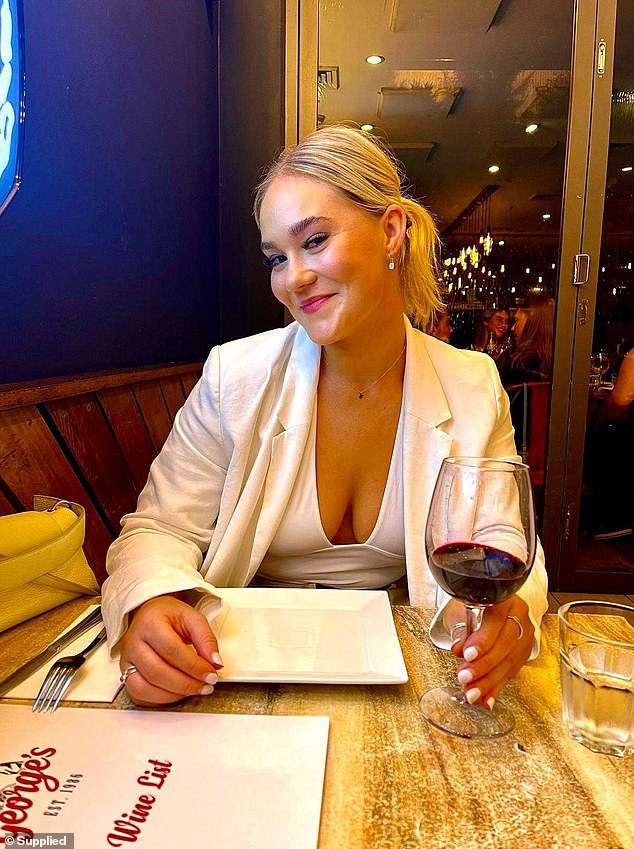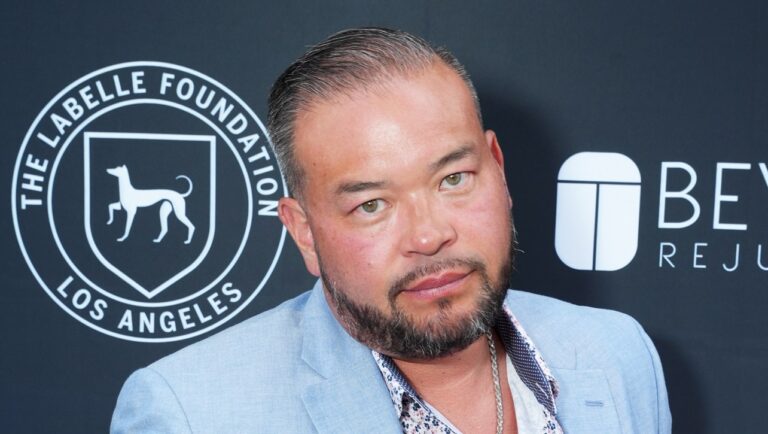ASydneyathlete was living the fun life of a typical 20-something before she noticed a ‘fiery and swollen’ feeling in her head out of the blue.
A fever followed and her illness quickly escalated into a full-blown seizure. It wouldn’t be the last.
Tiana Death (pronounced Deeth) had her world turned upside down in 2023 when she was just 22 when she was diagnosed with a rare, excruciating and debilitating condition calledautoimmune encephalitis.
Up until that point she had had what she would describe as a ‘normal upbringing’ in the suburbs with her mum Kylee, dad Trevor, two younger siblings Kirralee and Brodie and half-sister Briony.
Tiana had completed school in 2018 and had been promising competitive athlete at that time. Throughout her teen years Tiana trained almost daily and had the honour of representing Australia in the 100m hurdles at the 2018 Youth Commonwealth Games.
‘Honestly, before all of this, I was fit and healthy – especially after years of training as an athlete,’ Tiana told the Royale.
Post-school, Tiana had completed qualifications to work as a dental nurse and just prior to her health issues had decided totransition into the corporate world, landing an Account Executive role for a major food brand.
‘I was 22, working full time and honestly, living my life,’ she recalled.

Tiana Death (pronounced Dee-arthe) had her world turned upside down in 2023 when she was just 22
She was still living at home and enjoying going out with friends on the weekend, having a blast.
‘I would go out partying on a Friday and Saturday, just like everyone else,’ she said.
‘And then all of a sudden one day in 2023, everything changed.’
Tiana’s memories of the period of time that culminated in her first seizure are hazy. But there are certain aspects – and red flags – that have stuck in her mind.
‘I remember just one day suddenly having these flu-like symptoms, like a fever well over 38 degrees. I also felt really dizzy and really fatigued,’ she recalled.
‘What it felt like most was that my brain felt just so big in my head. Like, it was swollen.
‘But I knew something wasn’t right and I really did not feel like myself.’
Tiana called in sick to work and and went to see a doctor. The GP checked her over and ordered bloods, but was unconcerned about it being anything serious.

Prior to her first major health episode at age 22, Tiana had enjoyed a ‘normal’ upbringing and had also been a promising athlete as a teenager. She even had the honour of representing Australia in 2018 in the 100m hurdles at the 2018 Youth Commonwealth Games
‘I went home and thought I would just sleep it off,’ Tiana said.
That evening, Tiana’s mum popped her in bed with the air conditioning running and damp face cloths draped on her neck to try and bring down her soaring temperature.
But the next morning when Tiana’s mum went to wake her, she discovered Tiana unconscious, incontinent and foaming at the mouth.
An ambulance rushed her to the hospital emergency.
The following 10 days saw Tiana slipping in and out of consciousness in the ICU as she experienced ‘tonic seizures’ – sometimes as many as 10 in a day.Tonic seizures are short and swift, characterised by a sudden stiffening of the body.
The seizures were so continuous that doctors even discussed the possibility of putting her into an induced coma if they couldn’t be brought under control.
‘I don’t remember being in ICU at all, but I was told sometimes I would just stare at people and couldn’t speak,’ Tiana said.
‘People would come in and I wouldn’t remember them – I didn’t even recognise my own dad.

Younger sister Kirralee is pictured hugging Tiana when she was hospitalised in ICU in 2023. At that time, Tiana couldn’t speak and was experiencing rolling tonic seizures
‘I thought I was losing my mind, literally.’
Numerous medical observations, tests and even lumbar punctures were performed to try and ascertain what was going on.
‘Nothing was showing up, it was very frustrating’, Tiana said.
Eventually with the aid of epilepsy medication, Tiana was moved to a ward where she would re-learn simple activities like how to speak, walk and write.
Various epilepsy treatments and medications were trailed to get Tiana’s seizures under control.
However one that stood out for her was an IVIG plasma infusion.
IVIG, or intravenous immunoglobulin, is a blood product made from human plasma that contains a concentrated solution of antibodies and is used to treat a variety of conditions affecting the immune system.
Even though a precise diagnosis of Tiana’s condition beyond general epilepsy alluded her medical team at that stage, she felt relief after the IVIG infusion.

After two years of medical tests, Tiana’s current neurologist confirmed her diagnosis asautoimmune encephalitis, a condition where the body’s immune system mistakenly attacks the brain, causing inflammation
Following the infusions and a myriad of prescription medications, Tiana was discharged from hospital.
But without a clear diagnosis, the decision was made for Tianato resign from her job to focus on her health.
She endured many more years of intermittent and inexplainable seizures.
After cycling through countless appointments and tests, Tiana was finally connected with current neuro specialist. She said he figured out that she had the ‘kind of epilepsy caused by an autoimmune disease’.
The precise condition? Autoimmune encephalitis.
Autoimmune encephalitis refers to a group of conditions where the body’s immune system mistakenly attacks the brain, causing inflammation.This can lead to a range of neurological symptoms, including cognitive issues, seizures, and psychiatric disturbances.
‘It’s essentially your body and your immune system, attacking the brain,’ Tiana explained.

Tiana described the experience of having autoimmune encephalitis, saying ‘my brain can feel like it’s on fire.’
‘It explains why my brain can feel like it’s on fire.’
But before that determination was made, Tiana had tried in vain to claw back any semblance of a normal life.
She would intermittently work part time as a dental nurse, but would often have to leave when her seizures became too frequent.
She’s also tried moving out with friends on a couple of occasions, but wound up having to return to the family home as her health spiralled.
‘At one stage I didn’t have a job for about six months and was living back at home because I just couldn’t do anything because of the frequent seizures,’ she said.
It was around this time that Tiana had periods when she felt truly ‘low’.
‘Throughout this whole thing, I’ve tried to be so positive, but by this point I was like, “I can’t do this anymore”. I just wanted to just sit in bed all day,’ she said.
‘And also just seeing my parents go through it, and my siblings, was tough.

Tiana (far left) is grateful to have a close and supportive family behind her in this health journey. From L-R her brother Brodie, mum Kylee, sister Kiralee, half-sister Briony and dad Trevor
‘Even now, my parents are always texting me and ringing me every single day to check if I’m okay. That’ll always be the hardest thing because it will always be [part of] my life.’
However, once she was armed with her definitive autoimmune encephalitis diagnosis, positive treatment steps were made.
The current neurologist not only confirmed Tiana’s condition – but additionally noted that Tiana was ‘drug resistant’, meaning the swathe of epilepsy medications she’d been taken were relatively ineffective.
One of the specialist’s recommendations was consistent and monthly IVIG plasma infusions.
‘I now have IVIG monthly and have been seizure free ever since,’ Tiana said.
Tiana praises the ‘incredible’ medical support team she’s now supported by, including her neurologist, immunologist and epileptic psychologist.
‘They all work together,’ Tiana said.
‘And with my neurologist particularly – I know if if I send him an email about something, he’ll get back to me straight away, which is important.’

As part of her ongoing treatment management, Tiana undertakes monthly IVIG infusions (pictured). She hopes to one day be an advocate for IVIG and encourage plasma donations after experiencing the life changing benefits of it first hand
Tiana is also hugely grateful for her family’s endless love and support throughout the battle – as well as her close friends, including best friend Laura and another friend Anna, who is by Tiana’s side daily and helped here through countless seizures.
‘I have a really good support crew around me at home,’ she said.
‘You also realise in this situation who your true friends are. And I think I’ve come out of all this a lot stronger as a person too.’
Although Tiana is fortunate enough to be emotionally supported, she and her family are currently grappling with the vast financial pressures of funding her ongoing treatment management.
It’s the reason Tiana’s family kindly set up a GoFundMe page on her behalf with the hopes of raising $15,000 to set aside for her continued treatment, specialist appointments and medications as well as other ongoing costs.
But beyond financial contributions, Tiana said a simple generous gesture that almost anyone can make is to become a plasma donor.
Regrettably, Tiana notes that there are currently only a handful of Australian Red Cross locations in Sydney where people can donate plasma, but hopes one day plasma donation will be as common as blood donation.
‘I think plasma donation needs to be talked about a lot more, because there’s so many people like me with different autoimmune diseases who need it,’ she said.

Tiana’s family have kindly set up a GoFundMe page on her behalf with the hopes of raising $15,000 to set aside for her continued treatment, specialist appointments and medications and other ongoing medical costs
‘I hope to one day be an advocate for IVIG because I know first-hand how much it benefited me and has changed my life for the better.’
With the support of her doctors and a long-term treatment plan in place, Tiana, who is now 24, has finally begun to put the pieces of her life back together.
She’s moved out with her best friend on Sydney’s northern beaches and has resumed working a part time job as a dental nurse.
Tiana can even go out with friends on the weekends – but with limitations.
‘I can go out maybe once, but no more than that because I need at least eight to 10 hours sleep,’ she explained.
‘Anyone with with an autoimmune disease needs rest because you get very, very tired easily.’
Tiana has also now returned to working four-days per week as a dental nurse. But she also recognises that she sometimes has to go easy on herself because it’s something ‘you have to do for your health’.
Interestingly, Tiana has also tried to adopt a stress-free lifestyle despite her autoimmune disease diagnosis, because she has noticed a casual connection between feeling snappy and irritable and the increased likelihood of having a seizure.
‘Even before my first seizure, my mum said in the weeks leading up to the first one I seemed quite manic and irritated,’ she said.
‘We’ve both since noticed that it happened quite often in the lead-up to a seizure.
‘Now, I try to be more aware of when I’m feeling that anger or irritation. I’ll even sometimes cautiously stay home on those days.
Although it’s not possible for anyone living with an autoimmune disease to ever feel completely stress-free, she tries to remain aware of this factor as much as possible.
‘I know that if I’m really angry and frustrated, that’s just my brain telling me I need to relax. You can’t always live a stress free life, but I need to try and live as stress free as possible.’









